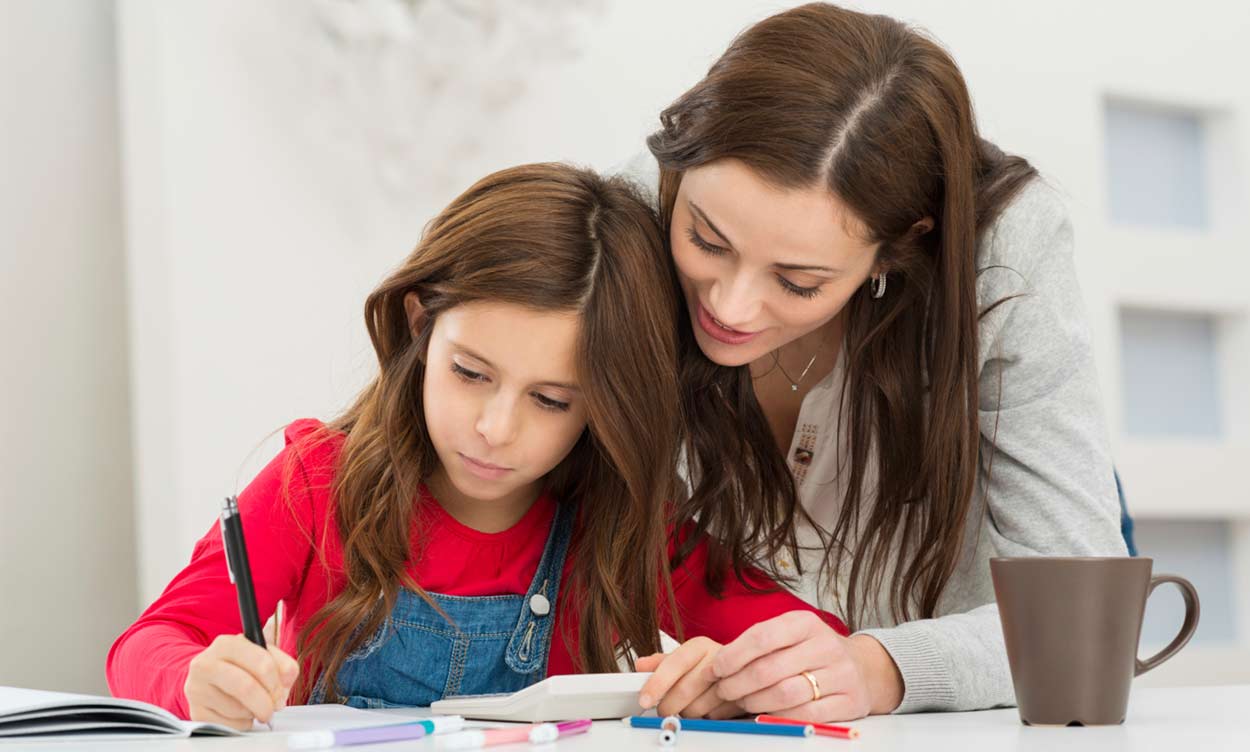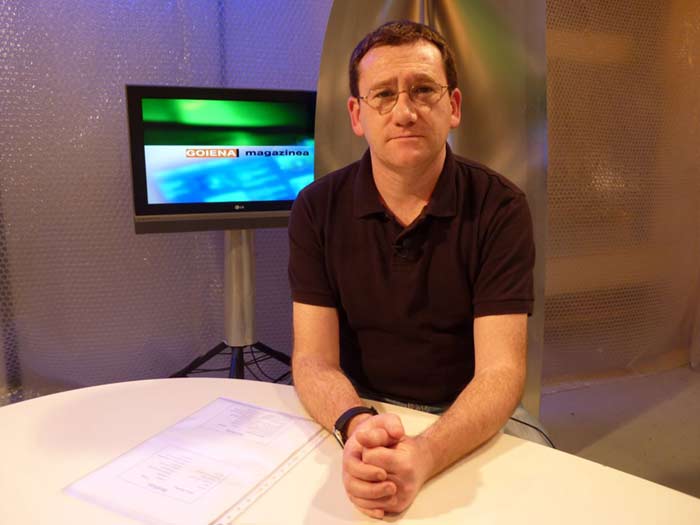And what about the family?
Family-school communication, the best extra-curricular support for our children

How should we organise the time spent on homework?
Firstly, we must bear in mind that it is the school that decides whether or not to set homework and how much is appropriate for students. Therefore, it is the teaching staff that sets this time. Quite another issue is that in families we should take this time as an anti-stress variable and not, as occurs in most cases, quite the opposite. Stress is generally caused by miscalculation of time in our different tasks. Learning to manage our time is a very important step in anyone's learning and in this point families can help by simply asking the students, without knowing what the subject is, how long they plan to spend on this task to later see to what extent they have met their intentions.
What is important is not whether to spend a short or long time but rather that they can calculate this time, they are able to organise themselves. Although parents sometimes become obsessed in this sense, there is no research at this time that reveals a correlation between time spent and academic performance. On the contrary, this relationship between merely performing the tasks and obtaining better grades has been observed.
Is it important to have free time after school?
In order to grow as people we inevitably need time for ourselves and in the case of children even more so. It is at that age when we work harder in the process of personal growth, and therefore, the younger we are the more time for ourselves we must have to carry out this growth from such natural areas as playing or relationships with others.
Is too much homework set nowadays?
If we listen to the OECD PISA report, Spain is one of the countries in which the most homework is set, above the average. However, this statement clashes with academic performance below this threshold. In countries like Finland, for example, hardly any homework is set and its position in these rankings is much more favourable.
On the other hand, most, but not all, of the homework set is directed at individual work and it does not always taken into account the students' capabilities. When they are very young, they are not yet capable of self-management (organising the task, schedule over time...) and sometimes an imbalance occurs at schools as they start to set homework too early when the student needs an adult by their side to complete it. It seems that the most recommended ages are around ten or eleven.
Are private classes a good idea? Are they used too much?
There are several studies that mention the correlation between academic performance and extracurricular or organised activities. It seems that academic performance drops among students who attend more than two of these activities, i.e. it is not recommended to fill up all evenings with languages, arts, etc. By contrast, performance is improved among those who practice a sporting activity among these two.
How can we help our children?
It is essential that we do not become assistant teachers, the parent is not a tutor who does the homework with the student, who gives them the lesson or explains the contents. The family must perform other functions. It is advisable to leave the contents to one side because, besides the fact that it is the teacher who has the right tools for this process, we each have our limits, i.e. one person can explain one subject but perhaps not another or vice versa, and we will almost certainly not be able to cover all topics.
In this sense, it is best to ask about what they have done and detect problems they have regarding understanding, inability to complete an exercise, etc. and inform the school about it. This information is really valuable, and in most cases unknown, so that the teacher can control the learning process in which the homework is carried out outside the classroom. Sending notes or using the school agenda in order to maintain constant communication with the teacher is one of the greatest supports we can offer our children.
Regarding the objective of learning to learn, it is best to focus on motivational aspects and maintain a positive attitude towards school. Keeping expectations fairly high that they will be able to do a task, talking about the benefits of this learning, making sense of the task at hand, strengthening their hopes for the future (if you want to be this or that when you're older you need to study this subject...) is as important as observing signs of frustration to help them or discuss it at school.
On the other hand, in a more cognitive distant aspect, for example, we can help them to divide up their homework, lend a hand with times and arranging, always through questions: How much homework have you got? How are you going to do it? Are you going to do it all today? Why are you going to do that one today? And even more. Even when they have resolved their questions in class, ask them again: Did you ask about what you didn't understand? How did it go? What did the teacher say? Playing with doubts to offer our support is essential in the learning process.
And regarding metacognitive aspects, helping them can be even easier. We can start by helping them organise the context of study, providing them with adequate, quiet, well-lit spaces, not allowing their brothers or sisters to disturb them, appreciating the efforts they make, avoiding or reducing by all means distracting elements such as TV, mobile, internet, etc.
Give great importance to the family-school relationship...
Yes, of course. Informing teachers about how you see them at home when doing their homework is very important so that they can choose the right homework to set. As I said, we must focus our efforts on more procedural and attitudinal concepts leaving the contents in the teachers' hands. A common situation: if a parent perceives their child is suffering because they cannot do their homework, a situation that creates a lot of distress in children because they cannot do what their teacher sets them or in older children because it will have negative effect on their final grade, and it is the adult who does it, at school nobody can detect what they know and what they don't know and this is one of the main functions of homework. However, if the adult decides to inform the school about this, those responsible will take due note of the problem generated and will deal with it in the classroom through teaching approaches that will satisfactorily resolve this situation.
Joxe Amiama
In this interview, the educational psychologist Joxe Amiama aims to answer several of the most frequently asked questions among parents regarding children doing their homework.

Photo Goiena Magazine (licence CC)
@ Contact


